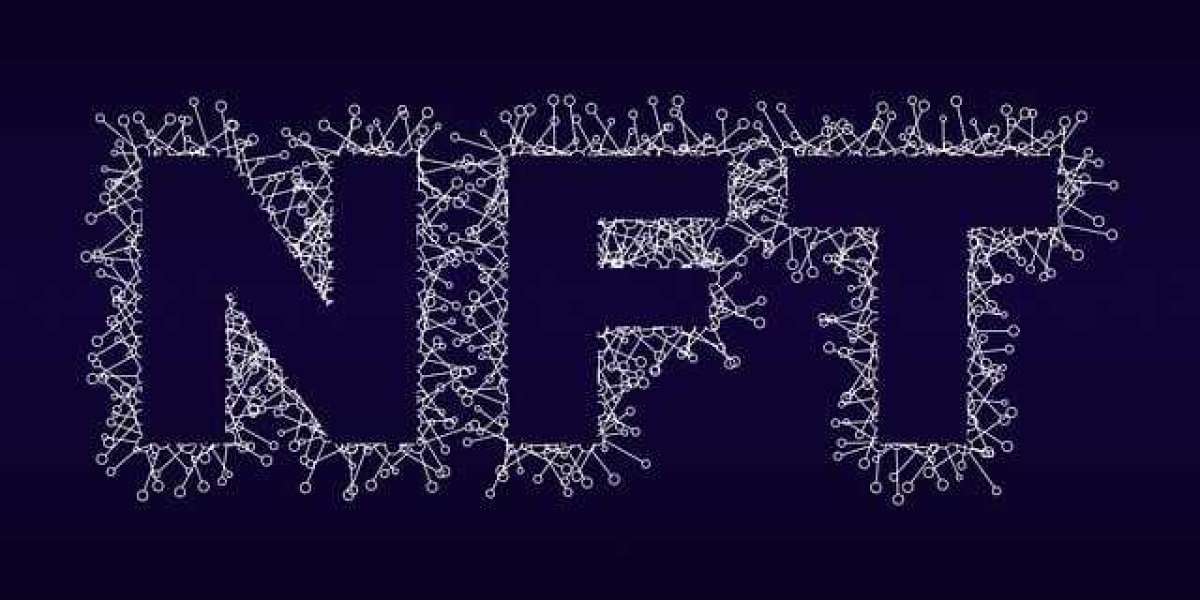The digital economy is moving beyond conventional cryptocurrencies into more sophisticated assets like Non-Fungible Tokens (NFTs). Among the latest innovations is the concept of fractional NFTs—a method of dividing ownership of a single NFT into smaller, tradable parts. This evolution has opened the doors for wider participation in the NFT market, making high-value digital assets more accessible to everyday investors.
However, participating in fractional NFT ownership isn't just about buying a piece of digital art. It requires a secure, capable infrastructure to hold, manage, and interact with these unique assets. This is where cryptocurrency wallets come into play. Thanks to advanced Cryptocurrency Wallet Development, users can safely store, track, and transfer their fractional NFTs just like they would with other digital currencies.
In this article, we’ll explore why cryptocurrency wallets are indispensable for fractional NFT ownership, how they support the growing NFT ecosystem, and what features are necessary for a seamless user experience.
Understanding Fractional NFTs
To fully appreciate the role of cryptocurrency wallets, it's essential to understand what fractional NFTs are. A typical NFT is a unique digital asset, verified through blockchain technology. It can represent ownership of digital art, music, videos, game items, virtual real estate, or even real-world assets.
Fractionalization allows one NFT to be broken into multiple units, each represented by fungible tokens (often ERC-20 tokens on the Ethereum blockchain). These tokens signify a portion of the NFT’s ownership and can be traded independently in the open market. This process significantly lowers the entry barrier, enabling more users to invest in high-value assets they otherwise couldn’t afford.
For instance, instead of paying $500,000 for a digital artwork NFT, a user can own a 1% share for $5,000. This makes NFTs more liquid, more accessible, and more adaptable for new investment models like decentralized crowdfunding and collective ownership.
The Role of Cryptocurrency Wallets in Fractional NFT Ownership
Secure Storage of Tokenized Ownership
Cryptocurrency wallets are essential for storing the fractional ownership tokens that represent shares in an NFT. Unlike traditional wallets, these digital wallets don’t store the asset itself, but rather the private keys and blockchain addresses associated with your holdings. If you lose access to your wallet, you effectively lose access to your NFTs.
Modern wallet technologies use encryption, biometric access, and seed phrases to ensure the highest level of security. For fractional NFTs, wallets must be compatible with both ERC-721 (standard NFTs) and ERC-20 (fractional tokens) to function properly.
Portfolio Management and Real-Time Tracking
As fractional NFTs grow in popularity, users may hold several fractions of various NFTs across different platforms. Cryptocurrency wallets enable users to track all their holdings in a unified dashboard. Some wallets even offer visual representations of the underlying NFT, transaction histories, and analytics that help users understand the value of their assets over time.
Wallets with decentralized application (dApp) browser integration also allow seamless access to NFT marketplaces, DeFi platforms, and fractional NFT protocols—turning the wallet into a control center for digital asset management.
Seamless Trading and Liquidity
One of the main advantages of fractional NFTs is their liquidity. Unlike full NFTs, fractional ones can be traded easily on decentralized exchanges. Wallets facilitate this by connecting to these exchanges and allowing users to buy or sell tokens directly. With wallet-to-wallet transactions and smart contract integrations, trades are executed in real time without intermediaries.
Additionally, wallets simplify the gas fee process by estimating transaction costs and offering users flexible options to speed up or delay transactions based on network congestion.
Interoperability Across Chains and Protocols
As NFT ecosystems expand beyond Ethereum to blockchains like Solana, Polygon, BNB Chain, and Avalanche, wallet interoperability becomes crucial. Wallets that support cross-chain interactions enable users to manage fractional NFT holdings across multiple networks without requiring multiple apps.
This cross-chain capability is especially important for investors and collectors who are diversifying their NFT portfolios and participating in different protocols for lending, staking, or yield farming related to NFTs.
Key Features a Wallet Must Have for Fractional NFTs
Multi-Token Support
Wallets must be compatible with both ERC-721 and ERC-20 standards to handle fractional NFTs properly.
dApp Integration
Built-in browsers or WalletConnect support enables interaction with NFT marketplaces and DeFi platforms.
Cross-Chain Compatibility
As NFTs move to multiple blockchains, wallets must adapt to ensure smooth asset management.
Strong Security Protocols
Security is non-negotiable. Multi-signature authentication, biometric access, and encrypted keys are must-haves.
User-Friendly Interface
A clean dashboard, NFT visualization, and easy-to-navigate features are vital, especially for new users.
Real-World Use Cases of Cryptocurrency Wallets for Fractional NFTs
Fractional NFTs are being used in several real-world applications today:
Digital Art Investment
Platforms like Fractional.art allow investors to own shares in blue-chip NFTs such as CryptoPunks and Bored Ape Yacht Club. Wallets help users hold and trade these shares effortlessly.
Gaming Assets
In games built on blockchain, high-value skins or characters can be fractionalized and co-owned by guilds or player communities, stored and managed through crypto wallets.
Real Estate and Virtual Land
Fractional NFTs representing land in metaverses like Decentraland or The Sandbox are stored in wallets and traded among users.
Music and Entertainment Rights
NFTs representing rights to songs or videos can be split among fans and investors, allowing shared royalty models—all managed securely through wallets.
Conclusion
As fractional NFTs continue to redefine asset ownership in the digital world, cryptocurrency wallets remain the cornerstone of this ecosystem. They empower users with the tools needed to securely store, manage, and trade fractionalized assets across multiple platforms and blockchains. The sophistication and innovation of Cryptocurrency Wallet Development are what make this level of accessibility possible.
For businesses and creators looking to enter this space, investing in the right wallet infrastructure is not optional—it’s essential. That’s why partnering with a Top Cryptocurrency Wallet Development Company like WisewayTec ensures you're equipped with cutting-edge technology, full compliance, and scalability. WisewayTec helps you build wallets that not only support fractional NFTs but also lead in security, design, and user experience.
Frequently Asked Questions (FAQs)
What is a fractional NFT?
A fractional NFT is a non-fungible token that has been split into smaller, tradable units, allowing multiple people to own a portion of a single digital asset.
Can I trade fractional NFTs directly from my crypto wallet?
Yes, many wallets integrate with decentralized exchanges and marketplaces, enabling users to buy or sell fractional NFT tokens directly.
Are all cryptocurrency wallets compatible with fractional NFTs?
No, only wallets that support both ERC-20 (fungible token) and ERC-721/ERC-1155 (NFT standards) can handle fractional NFTs.
How secure is it to store fractional NFTs in a crypto wallet?
Very secure—if you use a well-developed wallet with proper encryption, seed phrase protection, and multi-layered authentication features.
Why should businesses consider developing a custom wallet for fractional NFTs?
A custom wallet ensures specific features tailored to your business model, including fractional asset support, enhanced user interface, security, and cross-chain integration, giving you a competitive edge in the NFT space.














